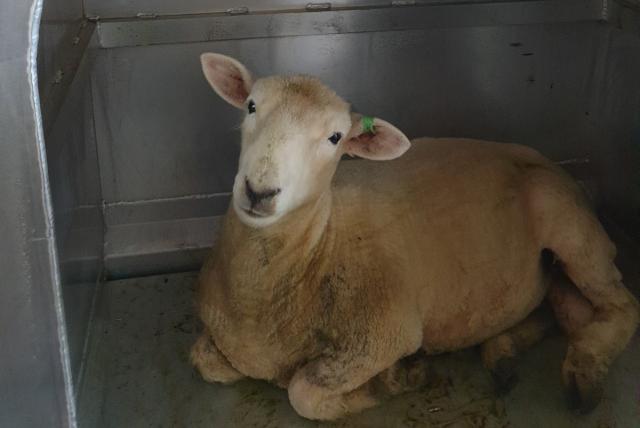Ram breeders wanting to have their animals’ methane emissions measured through the Cool Sheep® programme are encouraged to submit their expressions of interest before the end of November.

Through Cool Sheep®, SIL-registered stud breeders are able have the methane emissions of up to 168 progeny from their stud animals measured through Portable Accumulation Chambers (PAC). The resulting measurements are then combined with each sheep’s genotype (which breeders pay for) and a methane value is then assigned to that animal.
Now into its second year, Beef + Lamb New Zealand’s Cool Sheep® programme continues to gain support from this country’s rams’ breeders with over 22000 animals having had their methane emissions measured through Portable Accumulation Chambers.
Programme Manager, Dr Cynthia Lawrence, says the aim of the three-year Cool Sheep® programme is to give this country’s sheep farmers the opportunity to use genetic tools to reduce their methane emissions – if they wish to do so – while continuing to increase productivity.
Lawrence says over 90 flocks have been measured and these include 17 of this country’s 35 largest stud breeders. Combined, these 35 breeders supply 40 percent of the rams to the commercial market.
A survey of stud breeders carried out last year showed that 40 percent of those that responded were willing to consider or already use methane amongst their genetic selections. This has been reflected in the number of stud breeders who have taken advantage of the measurements offered through Cool Sheep®.
For the past two years, the methane measurement offer has been oversubscribed, and Lawrence expects a similar response this year.
She says they assess applications on both geographical and breed spread, size of the stud flock and scheduling logistics. Given the demand for PAC measurements, Lawrence says they are considering going to a partial payment model, as in earlier years with methane phenotyping.
“It will enable us to increase the number of animals we can accept into the Programme.”
New Zealand has led the world in the development of the first livestock genetic selection tool for methane reduction.
AgResearch scientists Dr Suzanne Rowe and John McEwan led a team which worked on the development of low methane genetics for over 13 years. This was funded by farmer investment through the Pastoral Greenhouse Gas Research Consortium along with the New Zealand Agricultural Greenhouse Gas Research Centre.
John McEwan firmly believed low methane producing genetics could be identified and once his hypothesis had been proved correct, Dr Rowe took over the science leadership and ensured that meat, wool and milk production were not comprised in the selection of low methane genetics.
Genetic selection has been shown to provide a potential of up to four percent reduction in methane per generation and is cumulative and permanent.
Southland breeders Leon and Wendy Black began including methane emissions in their breeding objectives over five years ago and are now seeing a clear correlation between low methane emissions and higher production.
Leon says they are seeing an economic advantage of 600-1000 cents in their index for their low methane sires over their higher emitting sires, which confirms that on average, they are selecting for more efficient, high productivity animals which are also lower emitting.
“For us it’s a no brainer.”
While he acknowledges that New Zealand’s sheep farmers already have a low carbon footprint, he believes this isn’t reason not to improve.
Sometime in the future, there is likely to be pressure from politics or markets for NZ producers to show that they have been working towards reducing their greenhouse gas emissions.
“Timing is key. The best time to improve any trait was 10 years ago, the next best time is now.”
Leon says their selection policy has always been structure first and numbers second, with an emphasis on traits that generate the best economic return.
In response to farmers’ growing interest in this area, Beef + Lamb New Zealand is investing time and expertise in the Cool Sheep® Programme to provide farmers with tools to manage and reduce ruminant methane emissions. The three-year programme is led by B+LNZ, with support from the Ministry for Primary Industries through its Climate Emergency Response Fund (CERF) and breeders.
More information
Stud breeders interested in measuring methane emissions from their flock can find more information and complete an expression of interest form at: www.methanebv.co.nz.